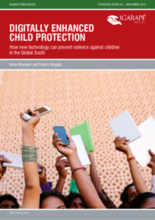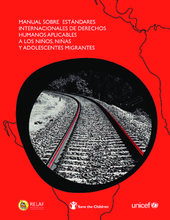This page contains documents and other resources related to children's care in the Americas. Browse resources by region, country, or category.
Displaying 1301 - 1310 of 1438
Using the accumulated wisdom of a select group of accomplished managers, academics and policy makers in social work and social care, this paper retrospectively reviews the evolution of Family Support within the Irish context and distils the core characteristics of Family Support practice and service delivery.
This Strategic Paper, from the Igarapé Institute, reviews emerging capabilities of information and communication technologies (ICTs) to prevent violence against children in the Global South.
This article assesses the evidence-based programs that are most likely to improve key health and well-being outcomes for teenage mothers in the United States and yields a list that reflects the best evidence for efficacy and effectiveness.
This paper presents the findings of an exploratory research study of foster care youth residing in group homes in a mid-Atlantic state in the USA.
El impacto de la Convención sobre los Derechos del Niño (CDN) ha sido muy importante: es el tratado de derechos humanos que goza de mayor aceptación y reconocimiento internacional, con 194 ratificaciones por parte de los Estados y cercano a la ratificación universal.
This study tested whether the extent of delays in support seeking is associated with working alliance for parents with mild intellectual disabilities (MID) and whether the importance of working alliance may depend on parenting stress and availability of informal support.
This paper provides new evidence on parent and child reporting of corporal punishment, drawing on data from the Fragile Families and Child Wellbeing Study, a birth cohort study of families in 20 medium to large US cities.
The Future of Children, a collaboration of Princeton University’s Woodrow Wilson School of Public and International Affairs and the Brookings Institute, has launched a new project entitled “The Child & Family Blog.”
This study focuses on examining the mediating effects of social support on familial well-being or quality of life in order to help professionals identify and enhance sources of support for all grandparent caregivers.
Ese video explica el sistema de cuidado alternativo en Argentina, particularmente la utilización de “hogares convivenciales,” donde viven juntos muchos niños y niñas separados de sus familias y el trabajo de DONCEL a ayudar a esos niños y niñas.




